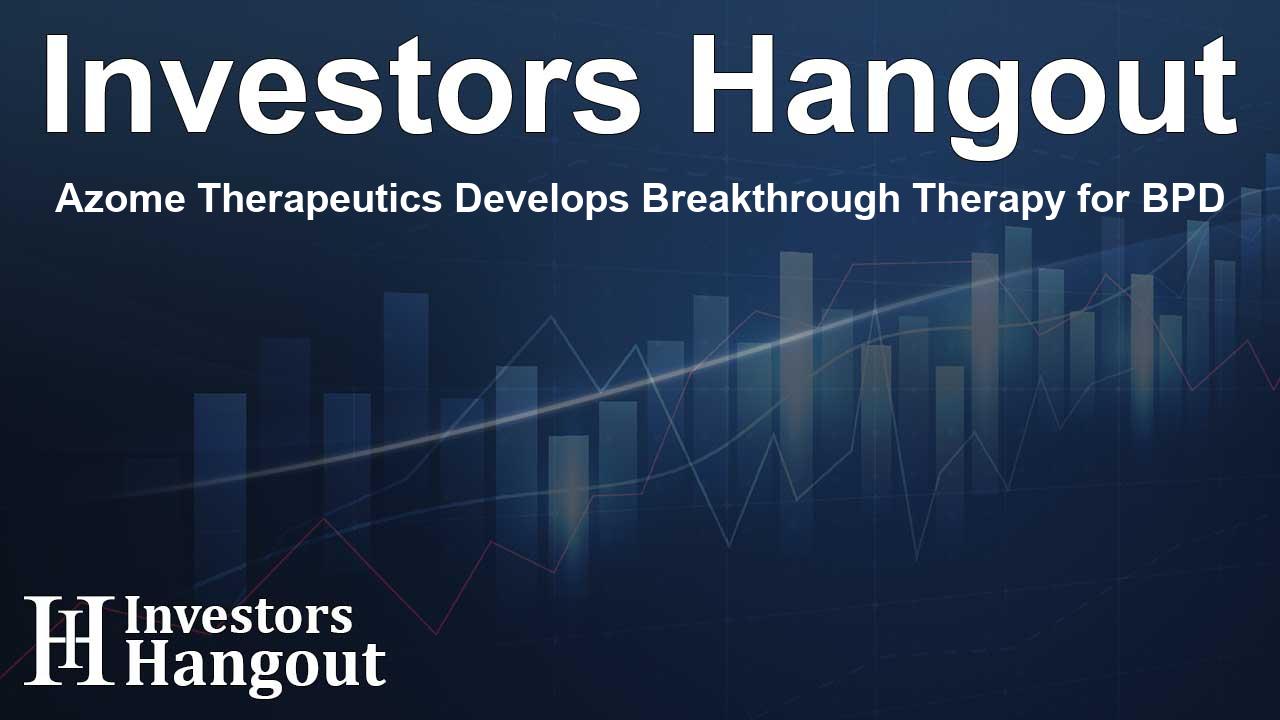Azome Therapeutics Develops Breakthrough Therapy for BPD

Azome Therapeutics Partners with NCATS for Novel Research
Azome Therapeutics, an innovative drug development company, has recently announced a partnership aimed at investigating a groundbreaking therapy targeting Bronchopulmonary Dysplasia (BPD). This collaboration with the National Center for Advancing Translational Sciences (NCATS) focuses on the preclinical development of AZM-152, a novel inflammasome antagonist, potentially leading to significant advancements in preventative care for this serious condition.
The Importance of BPD Research
BPD is a serious lung condition frequently impacting preterm infants, particularly those with very low birth weights. It arises from damage caused by mechanical ventilation and oxygen therapy, resulting in an inflammatory response that hampers normal lung development. Despite being a common result of premature birth, treatments remain limited, emphasizing the need for innovative solutions like AZM-152.
Understanding AZM-152’s Mechanism of Action
AZM-152 functions as a specific antagonist to the NLRP3 inflammasome, a crucial pathway in the inflammatory process associated with BPD. By inhibiting this pathway, AZM-152 aims to prevent the abnormal activation that leads to lung injury. This promising candidate could pave the way for new therapeutic strategies that address not only BPD but potentially a range of inflammatory conditions.
Preclinical Development and Its Promise
In initial preclinical studies, AZM-152 has shown significant potential in preserving lung function. When administered to neonatal mice exposed to harmful oxygen levels, the treatment resulted in normal lung alveolarization patterns, showcasing its effectiveness in preventing inflammatory responses. This finding supports the hypothesis that AZM-152 could serve as a preventative therapy for infants at risk of developing BPD.
Voices from Azome Therapeutics Leadership
Rashmin Savani, Chairman of Azome's Scientific Advisory Board, expressed the team’s enthusiasm for the collaboration, stating that they are honored to be working with NCATS on this critical research. He highlighted the shared vision of making AZM-152 a viable preventative treatment for BPD, aiming to improve outcomes for countless families dealing with the impacts of this condition.
The Broader Context of BPD
Yearly, approximately 15,000 infants in the United States develop BPD, with a concerning mortality rate of 10-15% in their first year. The direct effects on infants, combined with the emotional toll on families, translate into considerable healthcare costs, estimated at $5 billion annually. These statistics underscore the urgent need for effective treatments.
The Future of Azome Therapeutics
As Azome Therapeutics continues its research into AZM-152, the organization remains dedicated to addressing significant health challenges. CEO Elliott Gruskin emphasized the hope that this first-in-class therapy may one day assist families struggling with BPD. With current options lacking effective prevention strategies, AZM-152 could herald a new era in the treatment of this chronic disease.
About Azome Therapeutics
Azome Therapeutics is a pioneering firm committed to developing drugs targeting the NLRP3 inflammasome. By focusing on conditions such as BPD, acute lung injury, and more, Azome stands at the forefront of therapeutic innovation. The company aims not only to advance medical research but to provide tangible solutions for debilitating illnesses.
Frequently Asked Questions
What is Azome Therapeutics known for?
Azome Therapeutics focuses on developing selective antagonists targeting the NLRP3 inflammasome, particularly for inflammatory diseases like BPD.
What is the significance of AZM-152?
AZM-152 is a novel treatment under research that targets the inflammasome pathway to potentially prevent BPD in preterm infants.
Who is collaborating with Azome Therapeutics?
Azome has entered into a Cooperative Research and Development Agreement with the National Center for Advancing Translational Sciences to enhance its research efforts.
Why is BPD a concern for preterm infants?
BPD significantly affects lung development, causing long-term health issues and increasing care costs for families and healthcare systems.
What is the expected outcome of this research?
The hope is that AZM-152 will offer a preventative therapeutic approach for BPD, improving the quality of life for affected infants and their families.
About Investors Hangout
Investors Hangout is a leading online stock forum for financial discussion and learning, offering a wide range of free tools and resources. It draws in traders of all levels, who exchange market knowledge, investigate trading tactics, and keep an eye on industry developments in real time. Featuring financial articles, stock message boards, quotes, charts, company profiles, and live news updates. Through cooperative learning and a wealth of informational resources, it helps users from novices creating their first portfolios to experts honing their techniques. Join Investors Hangout today: https://investorshangout.com/
Disclaimer: The content of this article is solely for general informational purposes only; it does not represent legal, financial, or investment advice. Investors Hangout does not offer financial advice; the author is not a licensed financial advisor. Consult a qualified advisor before making any financial or investment decisions based on this article. The author's interpretation of publicly available data shapes the opinions presented here; as a result, they should not be taken as advice to purchase, sell, or hold any securities mentioned or any other investments. The author does not guarantee the accuracy, completeness, or timeliness of any material, providing it "as is." Information and market conditions may change; past performance is not indicative of future outcomes. If any of the material offered here is inaccurate, please contact us for corrections.